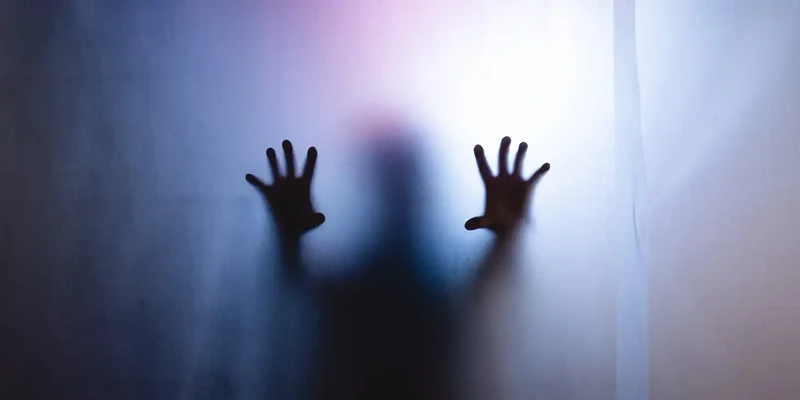
Table of Contents
- Signs You May Need Xanax Rehab
- Dangers of Quitting Xanax Cold Turkey
- What to Expect During Xanax Detox in LA
- Need to Detox?
- Inpatient vs. Outpatient Xanax Rehab
- Local Treatment Approaches for Xanax Addiction
- Using CBT and Motivational Interviewing in Recovery
- Treating Co-Occurring Disorders Alongside Xanax Addiction
- Need Help With Prescription Drug Addiction?
- Insurance for Xanax Rehab in Los Angeles
- Support for Long-Term Recovery and Relapse Prevention
- Choosing the Right Xanax Rehab in Los Angeles
- Finding Trusted Xanax Rehab Facilities in LA

Xanax, a commonly prescribed benzodiazepine for anxiety and panic disorders, plays a complicated role in the lives of many people in Los Angeles. While its short-term relief can be effective, prolonged use often builds dependence—both physical and psychological. If you’ve found yourself taking more Xanax than prescribed, struggling to stop, or worrying about a loved one’s use, you’re not alone.
In the greater Los Angeles area, the fast-paced lifestyle, high stress, and easy access to prescription medications can increase the risk of dependence. Xanax addiction often begins subtly, with the body adapting to the drug over time. What starts as medical treatment can evolve into a life-disrupting condition.
Acknowledging that something might be wrong is the first step. Whether it’s growing tolerance, withdrawal symptoms between doses, or increasing anxiety despite medication, these are red flags. Recognizing these signs early can make a big difference in getting the right help through Xanax dependence Los Angeles treatment options tailored to your needs.
Signs You May Need Xanax Rehab
How to Tell If You or a Loved One Is Addicted
Recognizing the signs of a Xanax problem can be difficult, especially since the medication is often prescribed for legitimate anxiety concerns. However, when use develops into dependency, certain patterns tend to emerge. Psychological signs may include increased anxiety between doses, mood swings, and mental fog. Behavioral indicators such as doctor shopping, losing interest in daily routines, or becoming secretive about drug use often accompany misuse.
Physical dependence on Xanax can trigger symptoms such as drowsiness, slurred speech, poor coordination, or unexplained memory issues. In some cases, people may begin taking higher doses than prescribed just to feel “normal,” which is a key signal of tolerance—and potentially addiction. Loved ones might also notice social withdrawal or sudden changes in work or school performance.
If you or someone close to you in Los Angeles is exhibiting these symptoms—especially in combination—it may be time to explore professional treatment options. Whether you’re wondering what are signs of Xanax abuse or concerned about subtle shifts in a partner’s behavior, early intervention helps reduce the risk of serious consequences. Xanax dependency is treatable with the right approach, and local rehab options in LA can provide a crucial starting point toward lasting recovery.

Dangers of Quitting Xanax Cold Turkey
Stopping Xanax abruptly—also known as quitting “cold turkey”—can pose serious health risks, some of which may be life-threatening. If you’ve developed a dependence on Xanax, your brain and body have likely adapted to its presence. Suddenly removing it disrupts this balance, often resulting in intense and sometimes dangerous withdrawal symptoms.
One of the most concerning risks of quitting Xanax cold turkey is the likelihood of seizures. These can occur without warning and may require emergency medical attention. Other severe symptoms include elevated heart rate, increased blood pressure, hallucinations, and tremors. Emotional and psychological effects such as extreme anxiety, agitation, paranoia, and suicidal thoughts may also arise, especially if the drug is stopped without proper preparation or support.
Xanax detox side effects can differ from person to person, but consistently, medical professionals strongly discourage abrupt cessation without supervision. A medically guided detox provides monitoring, emotional support, and when appropriate, gradual tapering using safer alternatives. This approach helps reduce the severity of withdrawal symptoms and increases both comfort and safety throughout the process. For Los Angeles residents exploring treatment, working with experienced professionals in local rehab or detox centers ensures the safest possible beginning to recovery from benzodiazepine addiction.
What to Expect During Xanax Detox in LA
Detoxing from Xanax is often the first essential step in the recovery process, but it should never be done alone. Xanax detox in Los Angeles centers provide medically supervised environments that help manage the discomfort and medical risks of Xanax withdrawal. During detox, you’ll receive support from trained professionals who monitor your vital signs, offer symptom relief, and help address both physical and emotional needs.
Xanax Withdrawal Symptoms and Timeline
Xanax withdrawal can begin just hours after the last dose and peaks within one to four days. Physical symptoms may include headaches, sweating, blurred vision, nausea, and muscle pain. Psychological symptoms often involve heightened anxiety, panic attacks, mood swings, and sleep disturbances. One of the most serious risks is the potential for seizures, especially with abrupt discontinuation.
The detox process typically lasts about 5 to 10 days, depending on your usage history and health status. LA detox centers may use tapering protocols to slowly reduce your dosage, helping to minimize withdrawal severity. In some cases, medications may be used to ease symptoms or manage co-occurring conditions. While detox doesn’t treat addiction itself, it’s a necessary step to begin healing safely and prepare for ongoing treatment.
Inpatient vs. Outpatient Xanax Rehab
When considering how to treat Xanax addiction in Los Angeles, choosing between inpatient and outpatient rehab is a critical step. Both options offer structured treatment for benzodiazepine addiction, but they differ in intensity, setting, and suitability based on your unique recovery needs.
Inpatient Xanax treatment involves staying at a residential facility, where you receive 24/7 care and daily support from a team of professionals. This level of care is often ideal for individuals with severe dependency, a history of relapse, or co-occurring mental health conditions. Being in a controlled environment removes daily triggers and provides a focused space for healing. Detox services are often included, and medical supervision is available to manage Xanax withdrawal symptoms safely.
Outpatient Xanax rehab allows more flexibility, enabling you to live at home while attending scheduled therapy sessions several times a week. This option is typically recommended for those with mild to moderate addiction, strong home support systems, and the ability to maintain daily responsibilities. Outpatient care may be less intensive, but it still provides access to therapies like CBT and relapse prevention planning.
Ultimately, the decision between inpatient and outpatient care depends on the severity of your addiction, your personal responsibilities, and the support you have at home. A licensed treatment provider in Los Angeles can help assess your situation and recommend the best level of care for sustainable recovery.
Local Treatment Approaches for Xanax Addiction
In Los Angeles, treatment for Xanax addiction centers on a blend of proven clinical practices and personalized care. Facilities often start with a thorough assessment to tailor the treatment plan to each person’s needs, especially for those struggling with benzodiazepine dependence. From there, most programs integrate a combination of medical detox, behavioral therapies, and mental health support.
Evidence-based therapies such as Cognitive Behavioral Therapy (CBT), Dialectical Behavior Therapy (DBT), and Motivational Interviewing are commonly used to help individuals identify triggers and build healthier coping skills. Medication-assisted treatment (MAT) may also be used cautiously for short-term symptom relief during detox under close medical supervision.
Many Xanax Recovery Services in LA offer integrated care models that address both substance use and co-occurring mental health conditions like anxiety or depression. This holistic approach helps ensure lasting recovery, especially when paired with outpatient options or transitional programs that support community reintegration. Accessibility of treatment is growing as more local providers work with insurance plans, removing financial barriers and encouraging earlier intervention.

Using CBT and Motivational Interviewing in Recovery
Two of the most effective therapeutic approaches used in treating Xanax addiction are Cognitive Behavioral Therapy (CBT) and Motivational Interviewing (MI). These evidence-based methods support both short-term recovery and long-term relapse prevention by helping individuals understand and change their thoughts, behaviors, and motivations related to substance use.
CBT for addiction focuses on identifying negative thinking patterns that contribute to Xanax misuse and teaching practical strategies to manage stress, anxiety, and triggers without substances. It equips individuals with coping skills they can apply in real-life situations, reducing the risk of relapse and promoting emotional regulation.
Motivational Interviewing is a client-centered approach that helps people explore their own reasons for change, especially when they feel ambivalent about quitting Xanax. Through nonjudgmental dialogue, MI strengthens an individual’s motivation and commitment to recovery, making it a powerful tool during early and ongoing treatment stages.
Together, CBT and MI play a vital role in comprehensive treatment for benzodiazepine addiction. Whether you’re entering outpatient or inpatient care, including these therapies can significantly enhance your ability to stay substance-free and build a healthier, self-directed life.
Treating Co-Occurring Disorders Alongside Xanax Addiction
Many people struggling with Xanax addiction also experience mental health conditions such as anxiety, depression, or post-traumatic stress disorder (PTSD). This overlap, known as a co-occurring disorder or dual diagnosis, is especially common because Xanax is frequently prescribed to manage these very symptoms. However, untreated mental health issues can complicate recovery and increase the risk of relapse.
Dual diagnosis treatment in Los Angeles takes an integrated approach, addressing both the addiction and the underlying psychological conditions simultaneously. This typically involves coordinated care from both addiction specialists and mental health professionals. Therapies like cognitive behavioral therapy (CBT), trauma-informed counseling, and medication management are often core components.
Without treating co-occurring disorders, recovery from Xanax addiction may be incomplete or unsustainable. Coordinated care ensures individuals receive comprehensive support, helping them better understand their triggers, manage stress, and build resilience. If you’re seeking treatment in Los Angeles, look for programs with experience in dual diagnosis care to support both your mental health and long-term recovery.
Insurance for Xanax Rehab in Los Angeles
Understanding how insurance works when seeking treatment for Xanax addiction in Los Angeles can help make recovery more accessible. Most major insurance providers in California—including Blue Shield of California, Kaiser Permanente, Anthem Blue Cross, and Medi-Cal—offer some coverage for substance use treatment, including Xanax rehab. The extent of coverage will depend on your specific plan, the type of treatment (inpatient or outpatient), and whether the facility is in-network.
To find out what your insurance covers, you can contact your insurance provider directly or speak with a treatment center that offers insurance verification support. Many LA detox centers and rehab programs have staff available to help confirm your benefits, estimate your out-of-pocket costs, and guide you through the admissions process.
Coverage often includes services such as medical detox, therapy sessions (including CBT and motivational interviewing), dual diagnosis treatment, and aftercare planning. If you’re uninsured or underinsured, Los Angeles County also offers public options and state-funded programs that may provide assistance with low-cost or no-cost care for benzodiazepine addiction. Navigating the insurance process can feel overwhelming, but support is available to help you begin your path to recovery.
Support for Long-Term Recovery and Relapse Prevention
Long-term recovery from Xanax addiction doesn’t end when formal treatment does. Continuing care, such as intensive outpatient programs (IOPs), individual therapy, and alumni services, can play a critical role in helping you transition back into daily life while maintaining sobriety. Many programs in Los Angeles offer gradual step-down support and structure to help you build confidence in your recovery.
Participation in peer support communities, such as local 12-step meetings or non-religious recovery groups, can also provide ongoing encouragement and accountability. Some individuals choose to work with a sober coach or recovery mentor to stay connected with their goals.
Developing a lifestyle that supports wellness—through healthy routines, supportive relationships, and stress management—is essential in relapse prevention. Los Angeles offers a range of recovery-friendly options, from therapy specializing in benzodiazepine use to wellness-focused events. With the right mix of clinical care and community support, you can build a sustainable recovery grounded in hope and resilience.

Choosing the Right Xanax Rehab in Los Angeles
Finding the right Xanax rehab in Los Angeles is a personal decision, but several core factors can help you identify a trusted facility. Start by verifying that the center is licensed and accredited by California health authorities—this ensures regulatory compliance and minimum standards for care. Facilities should also offer medically supervised detox to address Xanax withdrawal safely and with professional oversight.
Location matters, too. Some individuals thrive in a facility close to home for family support, while others seek distance from triggers. It’s also crucial to assess each program’s approach to treatment for benzodiazepine addiction—look for centers that use evidence-based therapies like CBT and include relapse prevention planning.
Responsive, transparent communication from staff is often a sign of quality care. During your research, don’t hesitate to ask about treatment philosophies, co-occurring mental health support, and aftercare planning. Most importantly, choose a program that aligns with your recovery goals and provides a compassionate, individualized path toward healing.
Finding Trusted Xanax Rehab Facilities in LA
Choosing the right rehabilitation facility is a personal decision that hinges on your unique needs and comfort level. Los Angeles offers a diverse selection of trusted treatment centers—both inpatient and outpatient—tailored to support those recovering from Xanax addiction. Whether you’re looking for medically monitored detox, therapy using CBT or motivational interviewing, or long-term relapse prevention strategies, there are compassionate professionals ready to help.
Taking the first step might feel overwhelming, but you don’t have to navigate it alone. Exploring reputable rehab facilities in your local area can connect you with the care and support system you or your loved one needs to start healing. Los Angeles is home to many options that align with a wide range of recovery goals and lifestyles.
Frequently Asked Questions
How long does Xanax rehab take in LA?
The timeline for Xanax rehab in Los Angeles varies depending on your individual needs, health status, and treatment plan. Detox may last up to two weeks, while inpatient or outpatient rehab can range from 30 to 90 days or longer for extended care.
What are the withdrawal symptoms of Xanax?
Xanax withdrawal symptoms commonly include anxiety, insomnia, muscle pain, irritability, and in severe cases, seizures. These symptoms can begin within hours after the last dose and may last several weeks without proper medical supervision.
Can I use insurance to pay for Xanax rehab?
Yes, many rehab centers in Los Angeles accept insurance for Xanax addiction treatment. Coverage varies by provider and plan, so it's important to verify benefits and understand what services are included.
Is inpatient treatment required for Xanax addiction?
Inpatient treatment is not always required, but it is often recommended for moderate to severe dependence or when withdrawal presents health risks. A clinical assessment usually determines the appropriate level of care.
Does Los Angeles offer outpatient Xanax programs?
Yes, Los Angeles has a wide range of outpatient Xanax rehab programs. These options include intensive outpatient programs (IOPs) and standard outpatient care, making it easier to maintain flexibility while receiving treatment.










































